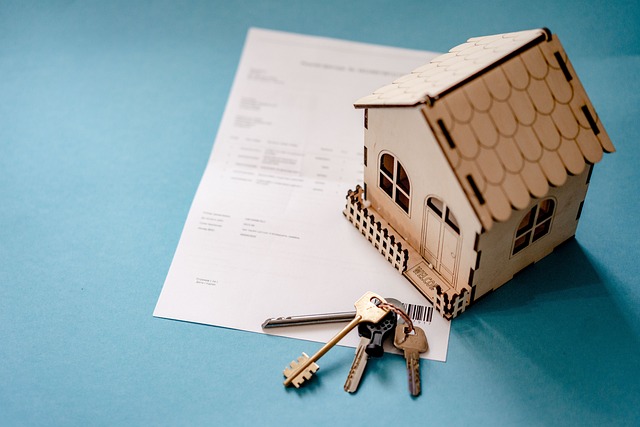Understanding rental contract terms is vital for student renters to ensure a positive housing experience. Key clauses to focus on include lease period, rent details, late fees, security deposits, maintenance, and subletting rules. By reviewing these thoroughly, students can avoid unexpected costs, conflicts, and foster a good relationship with their landlord. Negotiation and open communication are also powerful tools for simplifying complex rental contract terms.
Navigating the world of student housing can be daunting, especially when faced with complex lease terms. This comprehensive guide aims to empower students by simplifying rental contract language and ensuring they understand their rights. From deciphering legal jargon to negotiating clauses, we provide essential insights into key lease provisions, common pitfalls, and building landlord-tenant relationships. By the end, students will be equipped to make informed decisions, protecting their interests and creating a positive living environment.
- Understanding Key Lease Terms: A Student's Guide
- Deciphering Complex Language: Breaking Down Legal Jargon
- Essential Provisions Every Student Tenant Should Know
- Avoiding Common Pitfalls: Protecting Your Rights as a Renters
- Negotiating and Amending Contract Clauses
- Building a Strong Relationship with Your Landlord
Understanding Key Lease Terms: A Student's Guide

For student renters, navigating rental contract terms can seem daunting, but understanding key clauses is essential for a smooth living experience. A rental contract, or lease, outlines the rights and responsibilities of both the tenant and landlord, ensuring a fair agreement. Key terms to focus on include the lease period, rent amount and due date, late fees, security deposit policies, maintenance obligations, and subletting rules.
Understanding these elements can help students avoid unexpected costs or restrictions. For instance, knowing when and how much notice is required to end the lease, what constitutes acceptable maintenance issues, and if there are any limitations on bringing pets can prevent future conflicts. Familiarizing oneself with these rental contract terms empowers students to make informed decisions and fosters a healthier relationship with their landlord.
Deciphering Complex Language: Breaking Down Legal Jargon

Deciphering Complex Language: Breaking Down Legal Jargon
When it comes to student renters, understanding lease terms is essential for making informed decisions. Rental contract terms can often seem like a foreign language, filled with legal jargon that’s easy to overlook or misinterpret. This is particularly true for students who might not have prior experience dealing with such agreements. Terms like “considerable use,” “hold harmless,” and “indemnification” may sound intimidating, but they’re crucial to grasp. These phrases determine the rights and responsibilities of both tenants and landlords, influencing everything from maintenance requests to liability in case of damage or injury.
Simplifying this process involves translating complex language into clear, everyday terms. Landlords and property managers should strive to use plain English when drafting lease agreements, avoiding convoluted phrasing that could confuse renters. This transparency fosters trust and ensures students understand their obligations and protections. By breaking down legal jargon, student renters can confidently navigate rental contract terms, making their housing experience smoother and less stressful.
Essential Provisions Every Student Tenant Should Know

When it comes to renting as a student, understanding the lease is paramount. Herein lie essential provisions that every tenant should scrutinize before signing on the dotted line. Key among these are the duration of the tenancy, rent amount and due dates, along with details on security deposits and their return.
Further crucial points include maintenance responsibilities—who handles repairs and when—as well as subletting rules, if applicable. Also important are provisions for ending the lease early, eviction processes, and any restrictions on pets or noise levels. Familiarizing yourself with these rental contract terms empowers students to make informed decisions and avoid unexpected pitfalls during their tenure at a rented property.
Avoiding Common Pitfalls: Protecting Your Rights as a Renters

When signing a lease, students often face complex legal jargon that can be intimidating. It’s crucial to remember that understanding your rights and obligations is key to avoiding common pitfalls. Many rental contract terms can seem obscure, but they significantly impact your living situation. For instance, be vigilant about provisions related to maintenance responsibilities, security deposits, and termination clauses.
To protect yourself, thoroughly read and ask questions about any ambiguous sections. Know your rights regarding reasonable rent increases and fair notice for lease termination. Staying informed and asserting yourself can help ensure a positive rental experience, ensuring you’re not trapped in a contract with unfavorable terms.
Negotiating and Amending Contract Clauses

Negotiating and amending contract clauses can be a powerful tool for student renters looking to simplify their lease terms. Before signing, it’s essential to carefully review every section of the rental contract, understanding your rights and responsibilities. Many standard rental contracts include complex language that can be confusing or potentially disadvantageous for tenants, especially students who may not have extensive leasing experience.
During negotiations, focus on clarity and transparency. Request explanations for any unfamiliar terms and don’t hesitate to ask questions. You might also suggest modifying clauses related to repairs, maintenance, and security deposits to better align with your expectations. For instance, you could advocate for clearer guidelines on what constitutes a tenant’s responsibility in terms of upkeep or propose a cap on deposit amounts based on the property’s condition at move-in.
Building a Strong Relationship with Your Landlord

Building a strong relationship with your landlord is essential for navigating complex rental contract terms, especially as a student renter. Open communication is key; don’t hesitate to ask questions about unclear lease provisions or potential costs. Regular and honest conversations can help prevent misunderstandings later on.
By fostering good relations, you gain a valuable ally who might be more flexible or willing to explain intricate terms in simpler language. This proactive approach can make the rental experience less stressful and ensure you fully understand your rights and responsibilities as outlined in the rental contract terms.






